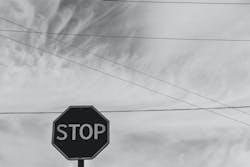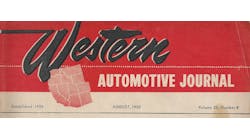I’m sure by the time you read this, the condo collapse in Miami will be old news. But right now while I’m writing this, it’s hard to escape some of the images from the devastation there. There are already reports that people reported that the building needed structural repairs years ago. Even without having a personal connection to the people who live there, it can still be easy to get angry that someone put profits ahead of the residents’ safety.
As I thought about that last point—profits ahead of safety—it made me pause and think about the similarities in our industry. There are articles that show up every day in our inbox about innovative technology and designs in today’s modern vehicle. How many of us are paying attention to these warning signs?
If you think I’m making an unfair comparison of a building collapse versus an unsafe vehicle repair, I challenge you to do a google search with the keywords “John Eagle Honda lawsuit” and read the articles. Sure, the final death toll of the condominium collapse will be far higher than any two-vehicle accident, but the point I’m making is, how many people are depending on us to make the correct decisions to keep them safe? Depending on the size of your shop, your decisions might be affecting hundreds or even thousands of lives per month.
So, what are the warning signs to which we need to pay attention?
This is not your dad’s body shop.
My dad was sitting in our office the other day and he was listening to me talk to a third-party calibration company as we were troubleshooting a DTC. My dad made the comment, “I can’t believe how much you have to know these days to repair a vehicle.” I wrote a tribute to my dad several months ago, and in case you didn’t read it, my dad always felt there was just one way to repair a vehicle, and that is the right way. But nowadays, the “right way” isn’t always so obvious. Gone are the days of simple repairs where we just had to make sure the panels were prepped correctly and we chose the correct amount of welds.
Research is the key.
If you don’t spend time on the front end of a repair reading OE websites for information on what can and can’t be done to a vehicle, I am going to tell you that it’s almost certain that you are repairing vehicles incorrectly. There is not a week gone by that we aren’t learning something new and, most of the time, what we learn is something we would have never guessed without reading the OE repair procedures. History or experience is no longer our teacher; they’ve been replaced with OE websites. If you aren’t reading OE repair procedures, I challenge you to take just one week and research each vehicle in your shop and see what turns up. See how many bumper covers you thought you could repair only to find out the manufacturer says they can’t be repaired due to what lying behind them.
You are in charge.
If you are most concerned with a report card showing how much you repair versus replace, then you are not in charge. Still, the responsibility falls on your decisions. Can you imagine if the person responsible for making the necessary repairs to the condo in Miami defended himself by saying the residents didn’t want to pay $20 more per month in fees to make the necessary repairs? He would not be let off the hook by passing the blame to the bill payer. And that goes for liability even moreso. If you deliver a vehicle with a final bill with your name on it, the liability falls on you. Yes, even if you get a third party to calibrate an ADAS feature, you are still liable if the third party doesn’t do the calibration correctly. Since we are in charge, it would be good to know what should be done to safely repair the vehicle.
Safety should always come first.
If you prioritize the safety of the people in and around the vehicles we work on, it will have a dramatic impact on the decisions you make. It will cause you to perform operations that the bill payers will fight you on, or refuse payment on certain procedures. When that happens, ask yourself what you would want your doctor to do in the middle of operating on you if they knew something needed to be done that the insurer questioned.
In our industry, if we aren’t thinking safety first, behaving as if we’re in charge, or treating it like it’s our dad’s body shop, we are headed for destruction. Just like the condo building in Miami, many people will be affected by our decisions.




